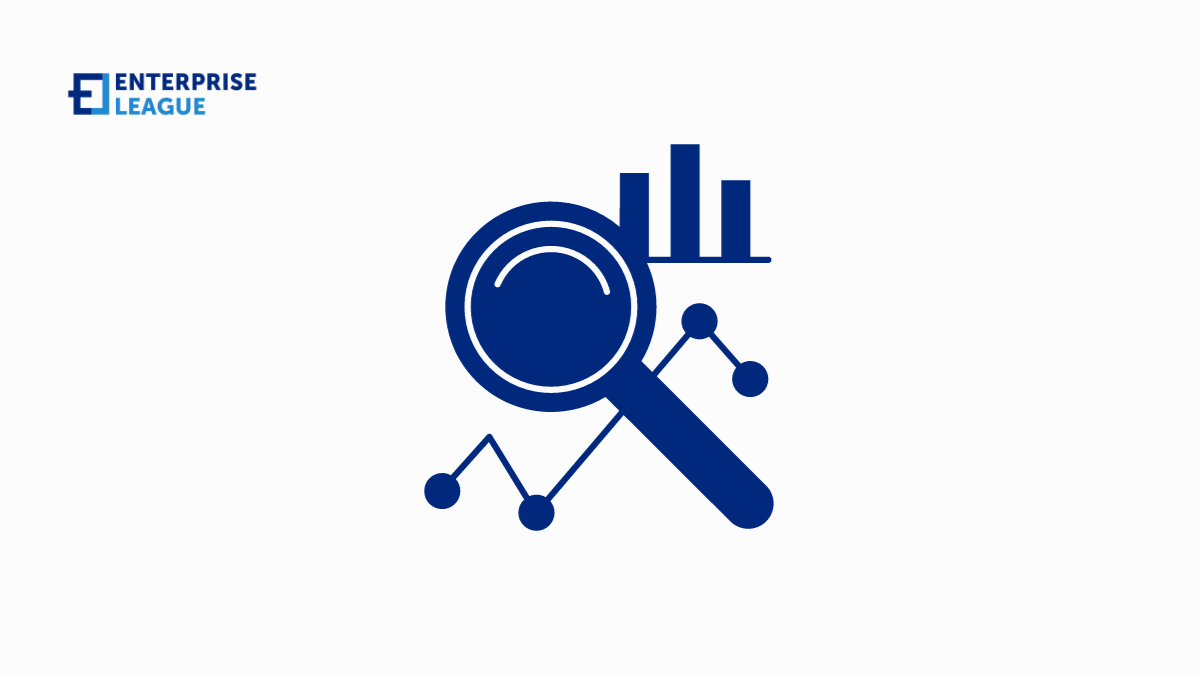How quantitative marketing is set to unlock billions for the global economy?
January 09, 2024

Envision a future where your desires are anticipated with uncanny accuracy, a future where businesses don’t just meet your needs, they anticipate them, creating a world tailored to your preferences.
This is no longer the realm of fantasy but the tangible reality crafted by the innovative strides in quantitative marketing. This technique is not merely a fleeting trend; it’s a robust cornerstone in the edifice of modern commerce.
It fundamentally redefines the interaction between companies and their patrons, fostering a new era of personalized service.
As we embark on this journey, we’ll delve deeper into the heart of quantitative marketing, exploring its profound influence on business strategies and consumer experiences, and revealing its role as a catalyst for economic growth and prosperity on a global scale.
Understanding quantitative marketing
This approach transcends traditional marketing by not just predicting what consumers might want but by understanding the why behind their choices. It involves cross channel analytics across SEO, SEM, and paid advertising analytics for data, among a slew of other sources to create actionable insights.
It’s a digital symphony where every note is a data point, harmoniously orchestrated by AI and machine learning, creating a melody that resonates with the deepest desires of consumers.
This symphony of data is the new heartbeat of the market, pulsating with insights that propel businesses towards unprecedented success and innovation. Despite its advances in recent years, it still remains in nascent stages, with plenty more to be done before it starts going mainstream.
The impact of quantitative marketing on businesses
How? Data revealed that their target customers, young professionals, preferred exotic coffee blends and eco-friendly practices. The cafe adjusted its offerings accordingly, and voila – a success story brewed by data.
Quantitative marketing is like having a crystal ball. It gives businesses the power to see not only who their customers are but also what they will want next. It’s about predicting trends, tailoring products, and even setting the right price at the right time.
In addition to marketing, such an approach can aid in other aspects of a business, such as in product development, supply chain management, and more, all of which stand to benefit from access to quality data and reliable insights.
Quantitative marketing and consumer behavior
Now, let’s talk about you, the consumer. Have you ever wondered how some ads seem to read your mind? That’s quantitative marketing in action. By understanding individual shopping habits and preferences, businesses can tailor their approach, making every message feel like a personal note rather than a shout in the dark.
This personal touch is magical, but it also brings up questions of privacy. In the dance of data-driven marketing, businesses must lead with grace and responsibility, ensuring that consumer data is used ethically and transparently.
While there are plenty of questions surrounding the ethics and morals of such marketing, in the end the economic value that is set to be unlocked here is simply too massive to ignore. There need to be rules and laws regarding the use of consumer data, but only to strike a balance.
Global economic implications
Quantitative marketing is not just a tool for corporate giants. It’s an international bridge, connecting businesses with consumers across the globe.
By understanding and predicting consumer needs worldwide, businesses can tap into new markets, breaking down geographical barriers. This isn’t just about profits; it’s about creating a more interconnected and prosperous global economy.
Beyond the businesses, merchants, and their consumers, this type of marketing unlocks opportunities for a range of other middlemen. From people who harvest data, to those who broker, process, and make them usable, a couple of billion dollars each year remains for the taking.
This also means that many activities that were once thought to add little-to-no economic value will now be monetizable, if they can help brands and merchants better understand human behavior. This, of course, is a concept in nascent stages, but it will be interesting to see how it unfolds going forward.
Challenges and limitations of quantitative marketing
But let’s not don rose-tinted glasses just yet. The road to data-driven utopia is bumpy. The sheer volume of data can be overwhelming, and making sense of it is akin to finding a needle in a haystack.
Plus, the ever-changing maze of data privacy laws adds another layer of complexity.
And let’s not forget the human element. Data can tell us what people are doing, but it can’t always tell us why.
The art of marketing still needs the human touch – creativity, empathy, and intuition. It is always possible that organizations that stick to traditional marketing approaches stand out when the giants all go headlong into quantitative marketing.
The biggest hurdle, however, is the privacy and data security laws, which are only increasing in recent years, such as with the likes of GDPR in Europe, and a string of other federal, state, and international laws that need to be complied with.
Conclusion
As we stand on the brink of a new era in marketing, it’s clear that quantitative marketing is more than a fleeting trend. It’s a beacon guiding businesses toward a future where understanding the consumer is the key to success.
By combining the power of data with the ingenuity of human creativity, businesses can unlock new levels of success, fueling not just their growth but the growth of the global economy.
In this brave new world, the businesses that will thrive are those that embrace the power of data while keeping their human core. So, as we embark on this exciting journey, let’s remember that at the heart of every data point is a human story waiting to be told.
More must-read stories from Enterprise League:
- Some of the worst business ideas you should steer clear from.
- Importance of online privacy laws in the digital era and how they protect us.
- Unique and creative guerrilla marketing ideas for small businesses.
- Learn how to deal with being proffesionally ghosted like an expert.
- Find out how having age diversity in the workplace can improve your business.
Related Articles
The role of legal services in business disputes
With the advent of new technologies and the changing legal industry, the role of legal services had changed and become crucial across various business disputes.
21 HR startups with innovative solutions in 2024
Lets take a look at these 21 HR startups that are taking talent acquisition into the future with AI recruitment and innovative approach to remote collaboration.
22 deep tech startups with innovative solutions (2024)
From fusion energy to regenerative medicine, deep tech is pushing the boundaries of what’s possible. These 22 deep-tech startups are shaping the future.
The role of legal services in business disputes
With the advent of new technologies and the changing legal industry, the role of legal services had changed and become crucial across various business disputes.
21 HR startups with innovative solutions in 2024
Lets take a look at these 21 HR startups that are taking talent acquisition into the future with AI recruitment and innovative approach to remote collaboration.





